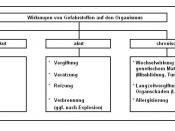The recommendations made by the Human Rights Watch group, which would increase the health and safety protection for meat industry workers, are ethical and should be adhered to by meat industry companies as well as the federal and state governments. Some of the most relevant recommendations were a reduction in production line speeds through state and federal laws, stronger regulations to stop companies from underreporting injuries, and the establishment of new laws that would ensure worker's safety and protect their rights regardless of immigration status (Gonzalez, 2005). Moral, legal and ethical considerations surrounding workplace safety have existed for a very long time. In this paper we will discuss the history of worker's safety in the workplace, the Occupational Safety and Health Act of 1970, and the utilitarian and deontological considerations surrounding the issue of protecting workers rights to safety in the workplace as well as the Human Rights Watch group's recommendations for the meat industry.
We will begin with a brief history of the issue of worker's safety in the workplace.
History of worker's safety in the workplaceWorker's safety in the workplace and what constitutes an "acceptable level of risk" has been an issue for thousands of years. One criterion that must be discussed in regards to this is the idea of "reasonableness". If the risk is reasonable then it is considered an acceptable risk. Other things to think about when considering the reasonableness of work related risk is knowledge of the risk, prevailing professional practice, necessity of the risk and whether or not the highest level of protection is available. When considering the reasonableness and acceptability of a risk, we must ask these questions; is full knowledge of this risk disclosed to an employee? Is this risk necessary to accomplish the job or is it avoidable? Is there...


